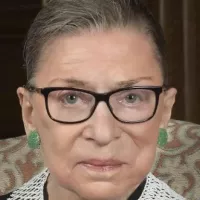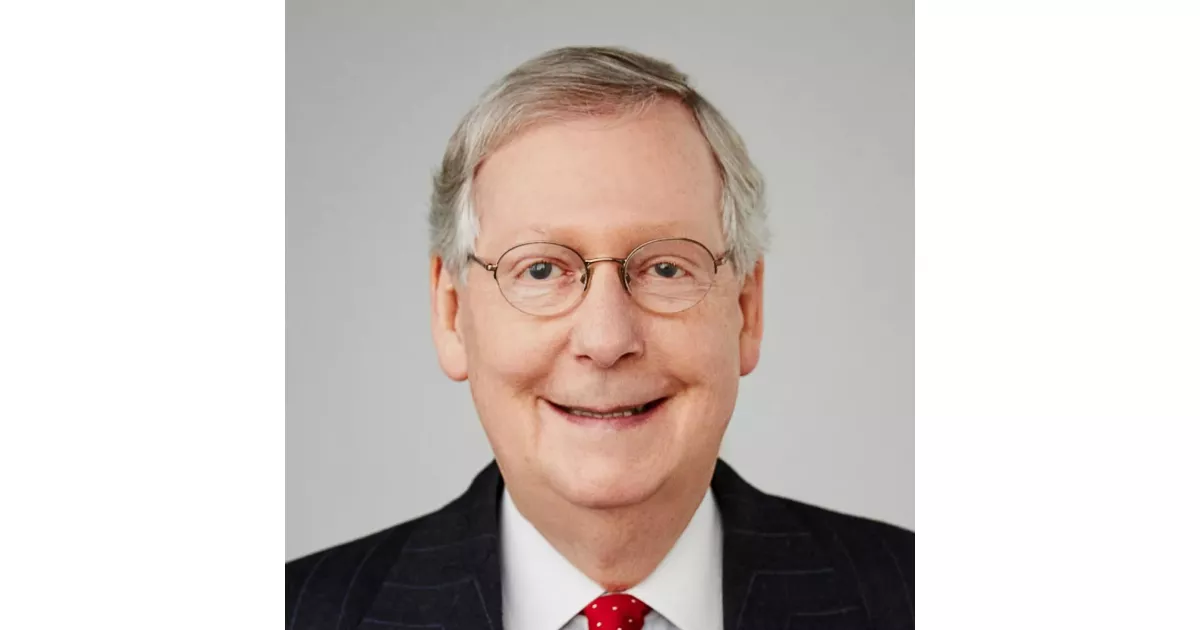Addison Mitchell McConnell III is an American politician and attorney currently serving as the senior United States senator from Kentucky, a position he has held since 1985. He is Kentucky's longest-serving senator. McConnell served as the leader of the Senate Republican Conference from 2007 to 2025, with periods as both minority and majority leader. His tenure as Senate party leader from 2015 to 2021, makes him the longest-serving Senate party leader in U.S. history.
1937: Alben W. Barkley Led Democrats
From 1937 to 1949, Alben W. Barkley led the Democrats in the Senate. This is a fact that puts Mitch McConnell in perspective.
1938: Lowest Voter Support in Primary
In 2014, Mitch McConnell's 60.2% win in the Republican primary was the lowest voter support for a Kentucky U.S. senator in a primary since 1938.
February 20, 1942: Mitch McConnell Born
On February 20, 1942, Addison Mitchell McConnell III was born. He is an American politician and attorney.
1944: Polio Attack
In 1944, at the age of two, Mitch McConnell's upper left leg was paralyzed by a polio attack.
1949: End of Alben W. Barkley's Term as Democratic Leader
In 1949, Alben W. Barkley's term as the leader of the Democrats in the Senate ended. This is a fact that puts Mitch McConnell in perspective.
1950: Moved to Augusta, Georgia
In 1950, when he was eight years old, Mitch McConnell moved with his family from Athens to Augusta, Georgia, where his father was stationed at Fort Gordon.
1956: Moved to Louisville, Kentucky
In 1956, Mitch McConnell's family moved to Louisville, Kentucky, where he attended duPont Manual High School.
1963: Attended March on Washington
In 1963, Mitch McConnell attended the March on Washington for Jobs and Freedom, where Martin Luther King Jr. gave the "I Have a Dream" speech.
1964: Graduated from the University of Louisville
In 1964, Mitch McConnell graduated Omicron Delta Kappa from the University of Louisville with a B.A. in political science with honors.
1964: Attended Civil Rights Rallies and Interned with Senator Cooper
In 1964, at the age of 22, Mitch McConnell attended civil rights rallies and interned with Senator John Sherman Cooper.
March 1967: Enlisted in the U.S. Army Reserve
In March 1967, Mitch McConnell enlisted in the U.S. Army Reserve as a private at Louisville shortly before the expiration of his educational draft deferment upon graduation from law school.
July 9, 1967: First Day of Training at Fort Knox
On July 9, 1967, Mitch McConnell had his first day of training at Fort Knox, Kentucky, two days after taking the bar exam.
August 15, 1967: Honorable Discharge from the U.S. Army Reserve
On August 15, 1967, Mitch McConnell was honorably discharged from the U.S. Army Reserve after being diagnosed with optic neuritis.
1967: Graduated from Law School
In 1967, Mitch McConnell graduated from the University of Kentucky College of Law, where he was president of the Student Bar Association.
1968: Chief Legislative Assistant
From 1968 to 1970, Mitch McConnell worked as chief legislative assistant to Senator Marlow Cook in Washington, D.C.
1968: Marriage to Sherrill Redmon
In 1968, Mitch McConnell married Sherrill Redmon.
1968: First Republican to Win Statewide Election
In 1968, Mitch McConnell was the first Republican to win a statewide election in Kentucky since 1968, which was attributed to Ronald Reagan's popularity.
1970: End of term as Chief Legislative Assistant
From 1968 to 1970, Mitch McConnell worked as chief legislative assistant to Senator Marlow Cook in Washington, D.C. His term ended in 1970.
1971: Return to Louisville
In 1971, Mitch McConnell returned to Louisville, where he worked on Tom Emberton's unsuccessful campaign for governor of Kentucky.
October 1974: Deputy Assistant Attorney General
In October 1974, Mitch McConnell returned to Washington to fill a position as Deputy Assistant Attorney General under President Ford.
1975: Acting United States Assistant Attorney General
In 1975, Mitch McConnell served as acting United States Assistant Attorney General for the Office of Legislative Affairs under President Ford.
1977: Elected Jefferson County Judge/Executive
In 1977, Mitch McConnell was elected the Jefferson County judge/executive, the top political office in Jefferson County, Kentucky, defeating incumbent Democrat Todd Hollenbach III.
1980: Divorce from Sherrill Redmon
In 1980, Mitch McConnell divorced Sherrill Redmon.
1981: Re-elected Jefferson County Judge/Executive
In 1981, Mitch McConnell was reelected as the Jefferson County judge/executive against Jefferson County Commissioner Jim "Pop" Malone.
1984: Elected to the U.S. Senate
In 1984, Mitch McConnell was elected to the U.S. Senate after winning against incumbent Walter Dee Huddleston by a narrow margin.
1985: Elected to the Senate
In 1985, Mitch McConnell began serving as the senior United States Senator from Kentucky, a position he has held since.
1990: Re-elected to the Senate
In 1990, Mitch McConnell was re-elected to the Senate, defeating Harvey I. Sloane by 4.4%.
1990: Closest Contest Since 1990
In 2008, McConnell faced his closest contest since 1990. In 1990, McConnell faced former Louisville Mayor Harvey I. Sloane, winning by 4.4%.
1993: Marriage to Elaine Chao
In 1993, Mitch McConnell married Elaine Chao.
1996: Re-election Victory Against Steve Beshear
In 1996, Mitch McConnell defeated Steve Beshear by 12.6% in the Senate election, even as Bill Clinton narrowly carried the state.
1997: Chaired National Republican Senatorial Committee
In 1997, Mitch McConnell became the chair of the National Republican Senatorial Committee.
1997: Founded James Madison Center
In 1997, Mitch McConnell founded the James Madison Center for Free Speech, a legal-defense organization based in Washington, D.C.
February 12, 1999: Vote on Bill Clinton's Impeachment
On February 12, 1999, Mitch McConnell was one of 50 senators to vote to convict and remove Bill Clinton from office.
2001: End of term as chair of the National Republican Senatorial Committee
In 2001, Mitch McConnell's term as chair of the National Republican Senatorial Committee ended.
2002: Senate Re-election
In 2002, Mitch McConnell was unopposed in the Republican primary and defeated Lois Combs Weinberg by 29.4% in the general election.
February 2003: Heart Bypass Surgery
In February 2003, Mitch McConnell underwent a triple heart bypass surgery at the National Naval Medical Center in Bethesda, Maryland.
2004: Bush's Reelection
After observing how Democratic cooperation with the Bush administration on No Child Left Behind and Medicare Part D helped Bush's 2004 reelection, McConnell learned that obstruction and Republican unity were the optimal ways to ensure Republican gains in upcoming elections.
2006: Elected Senate Minority Leader
In November 2006, after Republicans lost control of the Senate, they elected Mitch McConnell minority leader.
2007: Senate Republican Conference Leader
In 2007, Mitch McConnell became the leader of the Senate Republican Conference, a position he held until 2025, with two stints as minority leader and one as majority leader.
2007: Support of Iraq War Troop Surge
In 2007, Mitch McConnell publicly supported the Iraq War troop surge.
2008: Gift from Father-in-Law
In 2008, Mitch McConnell and his wife received a gift worth about $5 million to about $25 million from her father, James S. C. Chao.
2008: Re-election Victory
In 2008, Mitch McConnell defeated Bruce Lunsford by 6% in a close Senate race.
June 2009: McConnell on Sotomayor Nomination
In June 2009, after Obama nominated Sonia Sotomayor as associate justice, Mitch McConnell and Jeff Sessions opined that Sotomayor's 17 years as a federal judge and over 3,600 judicial opinions would require lengthy review and advocated against Democrats hastening the confirmation process.
May 2010: McConnell Comments on Elena Kagan Nomination
In May 2010, after President Obama nominated Elena Kagan to succeed the retiring John Paul Stevens, Mitch McConnell said in a Senate speech that Americans wanted to make sure Kagan would be independent of influence from White House as an associate justice and noted that Obama called Kagan a friend of his in announcing her nomination.
October 2010: Goal to Make Obama a One-Term President
In October 2010, Mitch McConnell stated that the single most important thing he wanted to achieve was for President Obama to be a one-term president.
2010: Congress Banned Earmarks
In 2010, Congress banned the practice of earmarks, which Mitch McConnell regularly obtained for businesses and institutions in Kentucky.
2010: Supreme Court Ruling on Campaign Finance
In 2010, Mitch McConnell led opposition to stricter campaign finance laws, culminating in the Supreme Court ruling that partially overturned the Bipartisan Campaign Reform Act (McCain-Feingold).
2010: Citizens United v. FEC Decision
In 2010, Mitch McConnell's opposition to stricter campaign finance laws culminated in the U.S. Supreme Court decision Citizens United v. FEC, which partially overturned the Bipartisan Campaign Reform Act (McCain-Feingold).
2011: Debt-Ceiling Crisis
In 2011, during the debt-ceiling crisis, Mitch McConnell said he had learned that "it's a hostage that's worth ransoming".
2012: Lowest Home-State Approval Rating
In 2012, a poll found that Mitch McConnell had the lowest home-state approval rating of any sitting senator.
March 1, 2013: Induction into Sons of the American Revolution
On March 1, 2013, Mitch McConnell was inducted into the Sons of the American Revolution.
2013: Elimination of Filibuster for Presidential Nominations
In 2013, Senate Majority Leader Harry Reid eliminated the filibuster for all presidential nominations except the Supreme Court.
2013: Federal Government Shutdown
In 2013, the federal government shut down from October 1–17, after Congress failed to enact legislation to fund it.
2014: "McConnelling" Emerges
During the 2014 election campaign, Mitch McConnell was lampooned for posting campaign B-roll footage online, leading to the practice of satirically interspersing the B-roll with other footage, termed "McConnelling".
2014: Became Senate Majority Leader
Following the 2014 Senate elections, where Republicans took control of the Senate, Mitch McConnell became the Senate majority leader.
2014: Re-election Victory Against Alison Lundergan Grimes
In 2014, Mitch McConnell defeated Alison Lundergan Grimes in the general election, securing his re-election to the Senate.
2014: McConnell Vows No Default or Shutdown
In 2014, Mitch McConnell vowed Republicans would not force the U.S. to default on its debt or shut down the government when stopgap funding measures were set to expire, and that he would not allow other Republicans to obstruct the budget-making process.
2014: Republicans Gain Senate Control; McConnell Becomes Majority Leader
In 2014, Republicans gained control of the Senate, and Mitch McConnell became majority leader, using his new power to start what was considered "a near blockade" of Obama's judicial appointments.
2015: McConnell Attends Beau Biden's Funeral
In 2015, Mitch McConnell attended the funeral of Joe Biden's son, Beau Biden, as media outlets portrayed the relationship between McConnell and the Biden administration as one of comity. He was the only Republican to attend the funeral.
2015: Senate Majority Leader
In 2015, Mitch McConnell became the Senate majority leader, a position he held until 2021.
2015: Time's 100 Most Influential People
In 2015, Time listed Mitch McConnell as one of the 100 most influential people in the world.
February 13, 2016: McConnell Blocks Obama Supreme Court Nominee
On February 13, 2016, after the death of Supreme Court justice Antonin Scalia, Mitch McConnell announced that the Senate would not consider any Supreme Court nominee put forth by President Obama, arguing that the American people should have a voice in the selection.
March 16, 2016: Obama Nominates Merrick Garland
On March 16, 2016, President Obama nominated Merrick Garland to the Supreme Court. Senate Republicans, under Mitch McConnell's direction, refused to take any action on the nomination.
May 4, 2016: McConnell Endorses Donald Trump
On May 4, 2016, Mitch McConnell endorsed Donald Trump as the presumptive nominee for president after Rand Paul withdrew from the race following the Iowa caucuses.
May 2016: McConnell Disagrees with Trump on Comments About Judge Curiel
In May 2016, after Donald Trump suggested that federal judge Gonzalo P. Curiel was biased against him because of his Mexican heritage, Mitch McConnell publicly disagreed, stating that Judge Curiel was born in Indiana and that all Americans come from somewhere else.
July 2016: McConnell Responds to Trump's Criticism of Khan's Parents
In July 2016, Mitch McConnell responded to Donald Trump's criticism of the parents of Humayun Khan, a Muslim-American soldier killed in Iraq, by stating that all Americans should value the patriotic service of those who defend the country in the armed services.
August 2016: McConnell on Blocking Obama's Supreme Court Nominee
In an August 2016 speech in Kentucky, Mitch McConnell said that one of his proudest moments was when he looked Barack Obama in the eye and said, 'Mr. President, you will not fill the Supreme Court vacancy.'
October 7, 2016: McConnell Responds to Access Hollywood tape
On October 7, 2016, following the Donald Trump Access Hollywood controversy, Mitch McConnell stated that Trump needed to apologize directly to women and girls and take full responsibility for his lack of respect for women shown in his comments on the tape.
2016: Lowest Home-State Approval Rating
In 2016, a poll found that Mitch McConnell had the lowest home-state approval rating of any sitting senator.
January 3, 2017: Garland Nomination Expires
On January 3, 2017, Merrick Garland's nomination to the Supreme Court expired with the end of the 114th Congress, as Senate Republicans, under Mitch McConnell's direction, had refused to take any action on the nomination.
April 7, 2017: Gorsuch Confirmed After Filibuster Eliminated
On April 7, 2017, Neil Gorsuch's nomination to the Supreme Court was confirmed after Mitch McConnell eliminated the filibuster on Supreme Court nominees.
April 2017: Elimination of Filibuster for Supreme Court Nominations
In April 2017, Senate Republicans led by Mitch McConnell eliminated the filibuster for Supreme Court nominations to end debate on the nomination of Neil Gorsuch.
October 2017: McConnell Defends Record on Trump's Agenda
In October 2017, in response to criticism from Stephen Bannon and other Trump allies that he was stalling the Trump administration's legislation, Mitch McConnell cited Neil Gorsuch's confirmation to the Supreme Court as evidence that the Senate supported Trump's agenda.
2017: Highest Disapproval Rating
In 2017, Mitch McConnell had the highest disapproval rating of any senator, with a 49% disapproval rate.
2017: Tax Cuts and Jobs Act
In 2017, Mitch McConnell led the passing of the Tax Cuts and Jobs Act.
2017: Satirical Portrayal on South Park
In 2017, Mitch McConnell was portrayed satirically in South Park's season 21 episode "Doubling Down".
2017: Failure to Repeal Obamacare
In 2017, Mitch McConnell's reputation as a skilled political strategist dimmed after Republicans failed to repeal the Affordable Care Act (Obamacare) despite consolidated Republican control of government.
2017: Approval Rating Underwater
In the first quarter of 2017, Mitch McConnell's approval rating was 44% positive and 47% negative.
April 2018: McConnell Calls Garland Decision Most Consequential
In April 2018, Mitch McConnell said the decision not to act on Merrick Garland's nomination to the Supreme Court was "the most consequential decision I've made in my entire public career".
June 2018: Longest-Serving Senate Republican Leader
In June 2018, Mitch McConnell became the longest-serving Senate Republican leader in U.S. history.
July 2018: McConnell on Border Wall Funding
In July 2018, Mitch McConnell stated that funding for the Mexico-United States border wall would likely be delayed until after the midterm elections.
July 2018: Trump Nominates Kavanaugh to Supreme Court
In July 2018, Trump nominated Brett Kavanaugh to replace the retiring Anthony Kennedy as an associate justice of the Supreme Court. Mitch McConnell accused Democrats of creating an "extreme" distortion of Kavanaugh's record during his hearings.
July 18, 2018: Republicans Break Record for Appeals Court Confirmations
On July 18, 2018, with Andy Oldham's Senate confirmation, Senate Republicans broke a record for the largest number of appeals court judiciary confirmations during a president's first two years. Oldham became the 23rd appeals court judge confirmed in Trump's term.
September 2018: Ford Accuses Kavanaugh of Sexual Assault
In September 2018, Christine Blasey Ford publicly alleged that Brett Kavanaugh had sexually assaulted her in 1982. Mitch McConnell stated that Kavanaugh would be voted on in the Senate floor.
October 2018: McConnell on Supreme Court Vacancy in 2020
In October 2018, Mitch McConnell said if a Supreme Court vacancy were to occur in 2020, he would not repeat his 2016 decision to let the winner of the upcoming presidential election nominate a justice, arguing the 2016 precedent was not applicable.
December 2018: Senate Passes Appropriations Bill Without Wall Funding
In December 2018, the Republican-controlled Senate unanimously passed an appropriations bill that did not include funding for the border wall.
December 22, 2018: Government Shutdown Begins
On December 22, 2018, the federal government shut down due to Congress refusing Trump's demand for $5.7 billion for a U.S.-Mexico border wall.
2018: Economic Growth Act
In 2018, Mitch McConnell led the passing of the Economic Growth, Regulatory Relief and Consumer Protection Act.
2018: Wealthy Senator Ranking
In 2018, the OpenSecrets website ranked Mitch McConnell as one of the wealthiest members of the U.S. Senate, with a net worth of more than $25 million.
2018: Economic Growth, Regulatory Relief and Consumer Protection Act Passed
In 2018, under Mitch McConnell's leadership, the Senate Republican majority passed the Economic Growth, Regulatory Relief and Consumer Protection Act.
2018: Worst Approval Rating
In the fourth quarter of 2018, Mitch McConnell had a 38% positive rating and a 47% negative rating among Kentuckians.
January 25, 2019: Government Shutdown Ends
On January 25, 2019, the federal government shutdown ended after Congress initially refused to allocate $5.7 billion for a U.S.-Mexico border wall at the demand of President Trump.
May 2019: Confirmation of Brother-in-Law
In May 2019, Mitch McConnell's brother-in-law, Gordon Hartogensis, was confirmed as director of the Pension Benefit Guaranty Corporation (PBGC) by the U.S. Senate, with McConnell voting to confirm.
August 2019: Polls Show Unfavorable Rating
From the end of July through August 2019, an average of polls showed Mitch McConnell with a 23% favorable and 48% unfavorable rating.
August 2019: Shoulder Fracture
In August 2019, Mitch McConnell fractured his shoulder in a fall at his Louisville home.
August 2019: Opposition to Eliminating Filibuster on Legislation
In August 2019, Mitch McConnell wrote an editorial for The New York Times strongly opposing the elimination of the filibuster on legislation.
September 2019: Approval Rating Underwater
In September 2019, the Morning Consult found that Mitch McConnell's approval rating had been underwater since the first quarter of 2017, and as of the second quarter of 2019, his ratings were 36% positive and 50% negative.
November 5, 2019: McConnell Comments on Trump Impeachment
On November 5, 2019, as the House of Representatives began public hearings on the impeachment of President Trump, Mitch McConnell stated that he believed an impeachment trial would not lead to Trump's removal from office.
December 14, 2019: McConnell Discusses Trump Impeachment Trial Strategy
On December 14, 2019, after meeting with White House counsel Pat Cipollone and White House legislative affairs director Eric Ueland, Mitch McConnell stated that he would be in "total coordination with the White House counsel's office" for Trump's impeachment trial and that there was "no chance" the Senate would convict Trump.
December 17, 2019: McConnell Rejects Witnesses for Trump Impeachment Trial
On December 17, 2019, Mitch McConnell rejected a request to call four witnesses for Trump's impeachment trial, stating that the Senate's role was to "act as judge and jury", not to investigate, and admitting that he was not an impartial juror, characterizing the process as political.
2019: Criticism for Withholding Votes
In 2019, Nancy Pelosi criticized Mitch McConnell for withholding votes on measures passed by the Democratic-controlled House, including the For the People Act of 2019, the Equality Act, and the Paycheck Fairness Act.
2019: Time's 100 Most Influential People
In 2019, Time listed Mitch McConnell as one of the 100 most influential people in the world.
2019: McConnell on Judicial Vacancies
In a 2019 interview, Mitch McConnell credited himself for the large number of judicial vacancies created in the last two years of Obama's presidency.
March 2020: McConnell Encourages Judges to Retire Before Election
By March 2020, Mitch McConnell had contacted an unknown number of judges, encouraging them to retire before the 2020 election.
April 22, 2020: McConnell Suggests States Declare Bankruptcy
On April 22, 2020, Mitch McConnell suggested that states should declare bankruptcy instead of receiving additional COVID-19 aid funds, leading to sharp criticism from state and local officials.
September 10, 2020: COVID-19 Relief Bill Fails in Senate
On September 10, 2020, Mitch McConnell's pared-down COVID-19 relief bill failed to pass the Senate due to a Democratic filibuster, with Democrats calling the bill "completely inadequate".
September 2020: McConnell Announces Vote on Ginsburg Replacement
In September 2020, after Ruth Bader Ginsburg died, Mitch McConnell announced the Senate would vote on Trump's nominated replacement.
November 2020: Elected to Seventh Term
In November 2020, Mitch McConnell was elected to his seventh term in the Senate, defeating Amy McGrath by nearly 20 percentage points.
2020: Criticism of Trump's Attempts to Overturn the Election
In 2020, Mitch McConnell criticized President Trump's attempts to overturn the presidential election results.
2020: COVID-19 Response Packages
In 2020, Mitch McConnell directed Senate Republicans in negotiations for two COVID-19 response packages: the Coronavirus Preparedness and Response Supplemental Appropriations Act, 2020, and the CARES Act, which was the largest economic stimulus package in U.S. history.
2020: Least Popular Senator
In 2020, Susan Collins edged out Mitch McConnell as the least popular senator with a 52% unfavorable rating from Maine voters compared to 50% for McConnell.
2020: McConnell Refuses to Recognize Biden's Victory Initially
In 2020, after Joe Biden defeated Trump in the election, Mitch McConnell initially refused to recognize Biden as the winner, although he did not repeat or contradict Trump's false claims of voter fraud, arguing Trump had the right to challenge the results while celebrating Republican Senate and House victories.
January 12, 2021: McConnell Reportedly Supported Impeaching Trump
On January 12, 2021, it was reported that Mitch McConnell supported impeaching Trump for his role in inciting the 2021 storming of the United States Capitol.
February 13, 2021: McConnell Votes to Acquit Trump
On February 13, 2021, Mitch McConnell voted to acquit Trump in his impeachment trial, arguing that it was unconstitutional to convict a president who was no longer in office.
April 10, 2021: Trump Attacks McConnell
On April 10, 2021, Donald Trump called Mitch McConnell a "dumb son of a bitch" and questioned whether McConnell had ever thanked him for hiring his wife. McConnell did not respond publicly.
May 28, 2021: McConnell Votes Against January 6 Commission
On May 28, 2021, Mitch McConnell voted against the creation of an independent commission to investigate the January 6 United States Capitol attack after seeking to organize Republican senators to filibuster it.
October 2021: McConnell Helps Extend Debt Ceiling
In October 2021, Mitch McConnell helped pass a bill that extended the debt ceiling by convincing 11 Republicans to vote with the Democrats, preventing the United States from defaulting on its debts.
2021: Senate Minority Leader
In 2021, Mitch McConnell became the Senate minority leader, a position he held until 2025.
March 2023: Hospitalization After Fall
In March 2023, Mitch McConnell was hospitalized for five days after a fall, treated for a concussion and a minor rib fracture.
July 2023: Fall at Airport
In July 2023, Mitch McConnell fell while disembarking from a plane at Ronald Reagan Washington National Airport.
July 26, 2023: Freezing at Press Conference
On July 26, 2023, Mitch McConnell froze, unspeaking, for around 20 seconds during a press conference, prompting media reports.
August 30, 2023: Freezing at Press Conference
On August 30, 2023, Mitch McConnell again froze during a press conference in Covington, Kentucky, leading to further concerns about his health.
2023: Time's 100 Most Influential People
In 2023, Time listed Mitch McConnell as one of the 100 most influential people in the world.
February 28, 2024: Announcement of Stepping Down as Senate Republican Leader
On February 28, 2024, Mitch McConnell announced that he would step down as the Senate Republican Conference Leader in January 2025 but would serve the remainder of his Senate term.
December 10, 2024: Fall During Senate Luncheon
On December 10, 2024, Mitch McConnell fell during a Senate Republican Conference policy luncheon, spraining his wrist and cutting his face.
2024: McConnell Steps Down as Senate Republican Leader
In 2024, Mitch McConnell stepped down as Senate Republican leader, months before the 2024 United States elections. John Thune was elected to succeed him after Republicans regained the majority in the 2024 U.S. Senate elections.
2024: Essay on American Power and Foreign Policy Mistakes
In late 2024, Mitch McConnell wrote an essay on his current view of American power and the foreign policy mistakes of former presidents.
January 2025: Stepping Down as Senate Republican Leader
In January 2025, Mitch McConnell stepped down as the Senate Republican Conference Leader.
February 20, 2025: Announcement of Retirement from Politics
On February 20, 2025, Mitch McConnell announced he would not run for an eighth Senate term in 2026 and would retire from politics.
June 2025: Support for Military Intervention Against Iran
In June 2025, Mitch McConnell supported Israel in the Iran–Israel War and called for military intervention by the United States against Iran.
October 16, 2025: Fall at US Capitol Building
On October 16, 2025, Mitch McConnell fell at the US Capitol Building while being doorstepped by an amateur reporter.
2025: End of term as Senate Republican Conference Leader
In 2025, Mitch McConnell's term as the leader of the Senate Republican Conference concluded.
February 2026: Hospitalized with Flu-Like Symptoms
In February 2026, Mitch McConnell was hospitalized for eight days due to "flu-like symptoms".
2026: Retirement from Politics
In 2026, Mitch McConnell will retire from politics.
2027: McConnell to Retire
In 2027, Mitch McConnell announced he will retire at the end of his term, when he will be 84 years old.
Mentioned in this timeline

Donald John Trump is an American politician media personality and...

Bill Clinton the nd U S President - served as...

Barack Obama the th U S President - was the...

Martin Luther King Jr was a pivotal leader in the...

Ruth Bader Ginsburg was an American lawyer and Supreme Court...

Rand Paul is an American politician and ophthalmologist He has...
Trending

25 minutes ago Connor Hellebuyck seeks Olympic redemption after NHL playoff struggles with Team USA.

25 minutes ago Jordan Binnington shines for Team Canada, Olympic heroics boost trade value.
25 minutes ago Amtrak train collision in Mobile County: Mother and daughter among two fatalities.

26 minutes ago Gretzky desires Canada's 2026 Olympic hockey team to win gold as 'True Canadian'.

26 minutes ago Tkachuk's Olympic Impact: Skill, Family Ties, and Hughes Brothers' Debut Shine
26 minutes ago Laken Riley Honored with Memorial 5K Run Two Years After Death
Popular

Jesse Jackson is an American civil rights activist politician and...

Barack Obama the th U S President - was the...

Bernie Sanders is a prominent American politician currently serving as...

Ken Paxton is an American politician and lawyer serving as...

Michael Joseph Jackson the King of Pop was a highly...
WWE Raw a professional wrestling television program by WWE airs...
